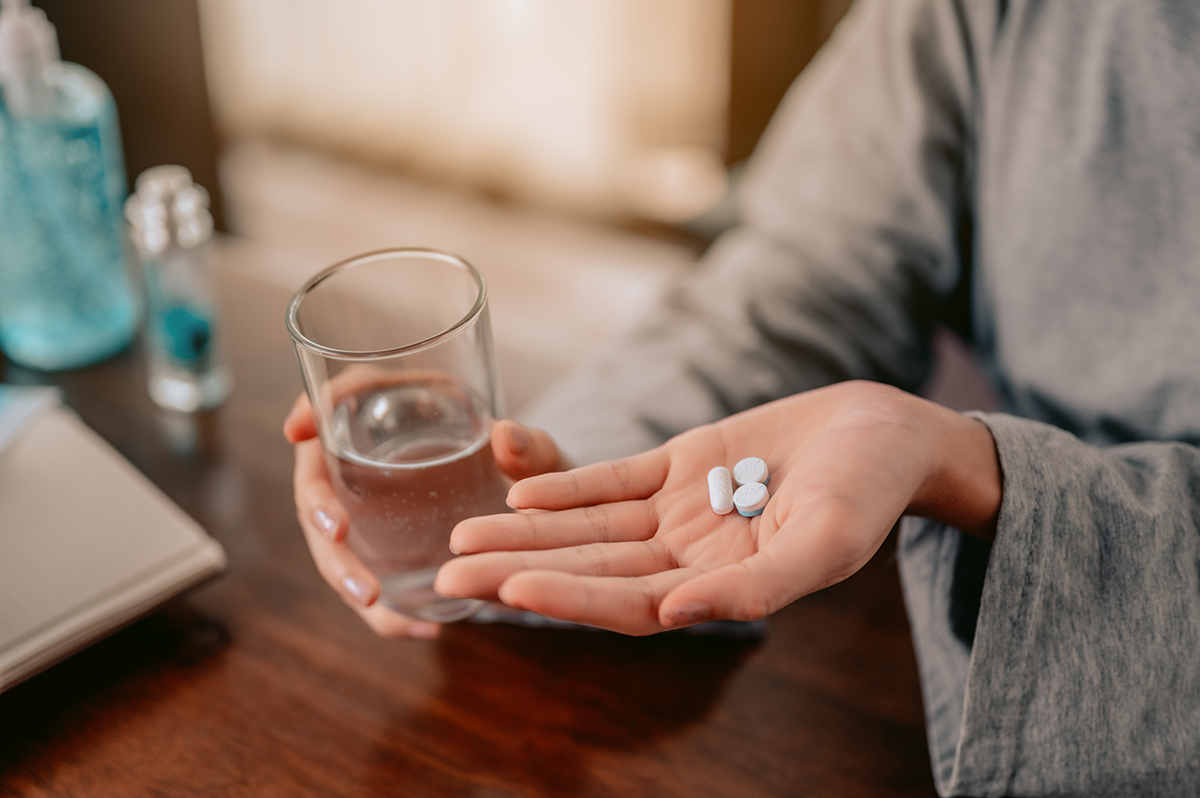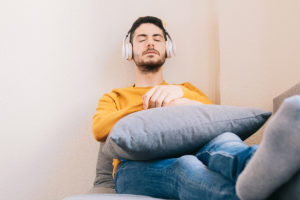Klonopin is a prescription medication used to treat several ailments including anxiety disorders. It is a type of benzodiazepine often prescribed as an antianxiety agent for panic disorder, but it can also be taken for epilepsy and seizures. Regardless of the reason why someone takes it, this drug can remain in the system for weeks or longer after the last dose. It is also an easy medication to abuse, making it necessary to be on the lookout for abuse symptoms and side effects.
When Will the Klonopin Leave My System?
When an individual takes Klonopin regularly, it will take a while for the drug to leave the body completely. A urine drug test to detect benzodiazepines can show positive results up to a month after the last dose. Checking the hair follicle may show results nearly just as long, while a saliva test would limit the results to just five or six days.
Though many factors help determine just how long Klonopin will stay in a person’s system, such as their weight and age and how long they took the medication in the first place, it can still take a while before none is detected whatsoever.
How Can I Stop Taking Klonopin?
An individual deciding to stop taking their prescribed dose of Klonopin should talk to their doctor. They will often create a plan to help the person taper off their use, such as taking a smaller dose for a few days or weeks, followed by an even smaller dose for days or weeks after that, until it is no longer needed. Reducing the amount little by little can help avoid withdrawal symptoms and ensure original symptoms do not return suddenly.
Klonopin Abuse Symptoms
People who abuse Klonopin, or any form of clonazepam, may experience mild to severe symptoms. It all depends on how long the drug was taken and the dose ingested.
Age, weight and overall health can also be factors, as well as whether it was taken with alcohol or another substance. It is never advised to take Klonopin with alcohol, as this can cause serious reactions and even slow a person’s breathing. It can result in death.
Generally, people who abuse Klonopin may feel:
- Irritable
- Fatigued
- Shaky
- Confused
- Hyperactive
- Hostile
Abusing medications often results in behavioral changes that can have negative consequences on relationships, work, and daily life.
Identifying Klonopin Abuse
Though it can sometimes be difficult to identify Klonopin abuse in those who hide it well, there are some signs that people can watch for. Loved ones of Klonopin users should be on the lookout for signs such as:
- Irritability
- Mixing alcohol with medication
- Shaking or shivering
- Mania
- Any sudden changes in behavior
The FDA has updated warning labels on benzodiazepines for a reason. There is a heightened possibility of becoming addicted to and abusing these types of medications since they ease anxiety so well and work quickly. While abuse symptoms may not show up immediately, there will eventually be signs.
Side Effects of Klonopin Abuse
Abusing any medication, Klonopin or otherwise, can lead to serious side effects. A person must seek emergency medical assistance when severe side effects occur, particularly if there is trouble breathing, swelling in the face and mouth, or an allergic reaction such as hives, hallucinations, or suicidal thoughts.
Some typical side effects of Klonopin abuse include:
- A lack of coordination
- Struggling with recall or concentration
- Feeling dizzy
- Feeling drowsy
- Headaches
- Slurred speech
- Blurred vision
- Weight fluctuations
- Skin rashes
Even though Klonopin generally leaves the body in a month or less, it can take up to a year for withdrawal symptoms to dissipate. This is especially true for longtime users. That is why it is so important for people struggling with Klonopin substance abuse to seek assistance to kick the habit and return to normal health. A benzodiazepine detox is often the first step of the process.
Klonopin Overdose
Klonopin (clonazepam) is a prescription benzodiazepine medication used to treat anxiety and seizures. An overdose on Klonopin use can be life-threatening and cause serious health consequences. Symptoms of Klonopin overdose can include confusion, slurred speech, drowsiness, loss of consciousness, respiratory depression, and coma. In severe cases, overdose can result in death. It’s important to use Klonopin only as prescribed by a healthcare provider and to never take more than the recommended dose. If you suspect a Klonopin overdose, it is important to seek immediate medical attention.
Klonopin Withdrawal Symptoms
Withdrawing from benzodiazepines such as Klonopin can also conjure symptoms. That is why it is safest to detox in a rehabilitation facility and not alone. Withdrawal symptoms may include:
- Hand tremors
- Excessive sweating
- Nausea
- Weight loss
- Headaches
- Heart palpitations
- Muscle pain and stiffness
- Difficulty sleeping
- Panic attacks
- Mental health problems
Being monitored in a safe setting can help ensure severe symptoms get treated promptly and do not result in further abuse to minimize them, or death. In a rehab facility, a professional is always there to monitor the process and routinely check in on the individual to ensure they are stable.
Which Medications Interact With Klonopin?
Just as alcohol interacts poorly with Klonopin, so do many medications. It is not advised to take other benzodiazepines or opioids unless prescribed by a doctor and taken exactly as indicated. Certain drugs can increase the effects of Klonopin, such as Ketoconazole, nefazodone, and ritonavir. Others will decrease effects, like Carbamazepine and phenobarbital.
Because Klonopin drug use can also cause drowsiness, it is important to speak with a doctor before taking other medications that have similar effects. This includes things like Benadryl, Ambien, pain medication such as Vicodin, and even codeine cough syrup. Individuals may need to find alternative solutions with the help of their doctor or request advice on how far apart to take doses of their Klonopin and any additional medications.
How to Help a Loved One?
A family member or friend who realizes their loved one has a problem with Klonopin should seek help from a professional. It is also wise to encourage the individual to seek therapy. Many holistic therapy options exist for those struggling with addiction, including meditation, yoga, journaling, art therapy, and more. When also combined with regular individual or group therapy, the results can be especially worthwhile.
Seek Help With Bellagio Treatment Center
When a person is ready to get help with their Klonopin addiction, they can seek assistance from the Bellagio Klonopin addiction treatment center. Located in the Lancaster Desert, this facility offers the respite necessary to handle such a delicate situation. Contact us to begin a new journey toward wellness.






